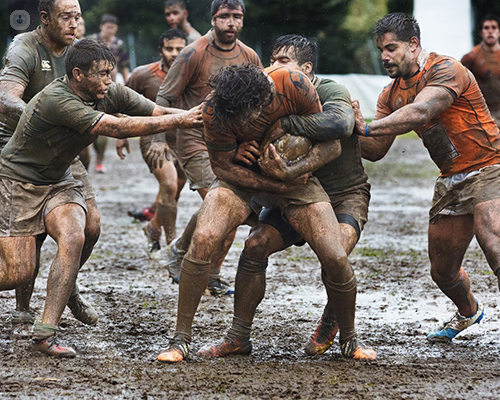Anterolateral ligament (ALL) injury: can athletes recover?
Written by:The anterolateral ligament (ALL) is a ligament on the outside of the knee that contributes to stopping the knee giving way. It is commonly torn at the same time as the anterior cruciate ligament (ACL) in a sports injury, but most surgeons ignore it and only fix the ACL.
This is one of the common reasons why ACL surgery alone may not be successful in stopping the knee from giving way, or why people can re-rupture the ACL graft. Just fixing the ACL is only half the job. Leading orthopaedic surgeon Mr Charles Willis-Owen explains more...

What does an ALL injury feel like?
When you tear your ALL it more or less always happens at the same time as tearing the ACL so it is really hard to know it has happened. It is safest to assume it has gone at the same time. It will feel very sore on the outer (lateral) side of the knee. The knee will give way unpredictably when you twist.
How can an injured ALL be repaired or reconstructed?
The ALL is easily reconstructed at surgery as part of an ACL reconstruction, or sometimes if I see someone who has had their ACL done elsewhere and the knee still gives way then I add this as a secondary procedure. It takes about 10 mins to add the ALL part to an ACL operation. It involves 2 small cuts each about 1cm on the outer aspect of the knee.
Is the recovery any different?
No, the recovery is dominated by the ACL recon, so aside from the surgeon needing to spend 10 minutes more on the operation, it shouldn't make a big difference.
For athletes, is a comeback possible following an anterolateral ligament injury?
Absolutely! Adding an ALL reconstruction to an ACL reconstruction is a really sensible thing to do for anyone looking to get back to contact, collision or twisting sports to give them a really robust knee. I use this on all of the professional and serious amateur sports people I see after discussing it with them. The real question is whether a safe comeback is possible without it! This is where we see people getting back to the sport, only to re-injure the knee early on, and have to go through it all again (hopefully this time with the ALL fixed too).


